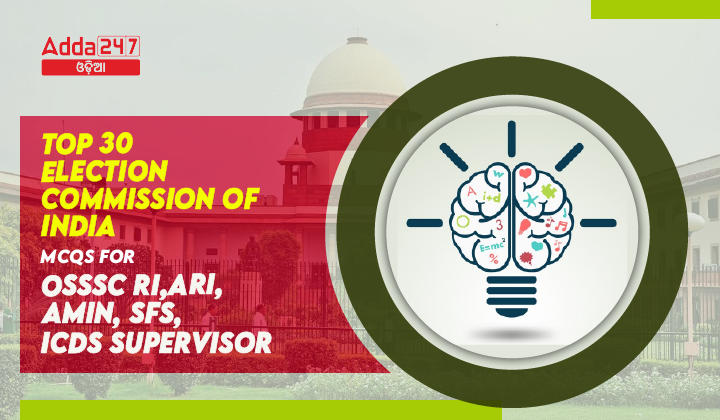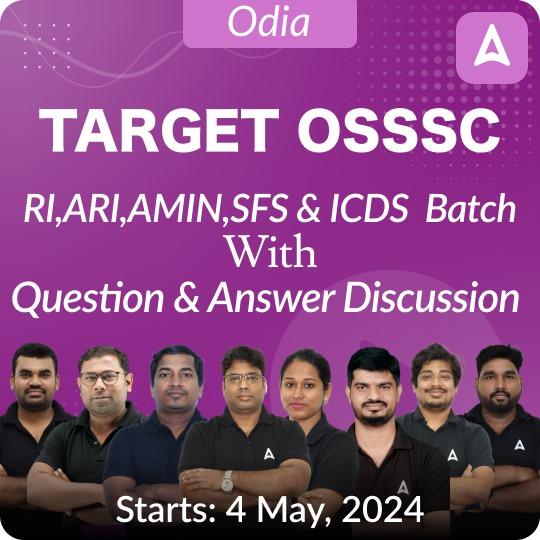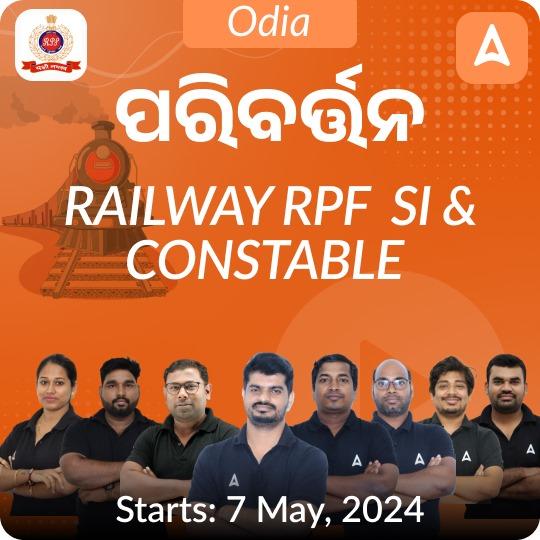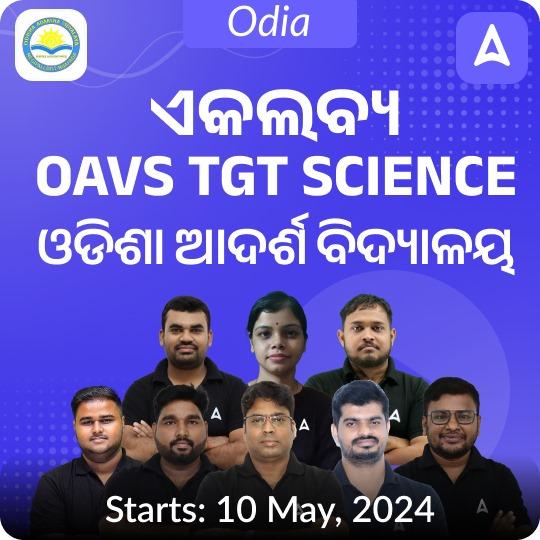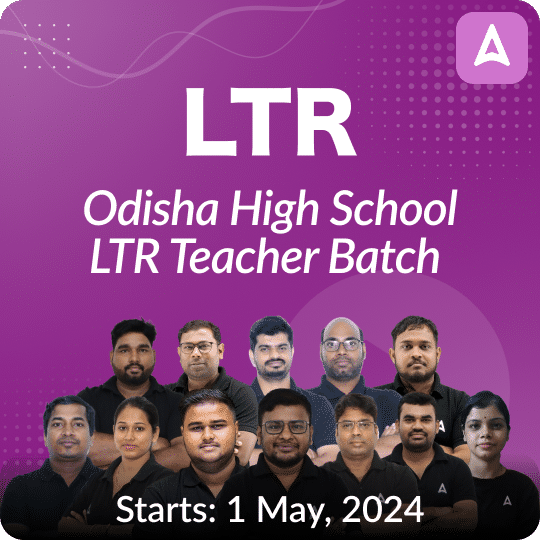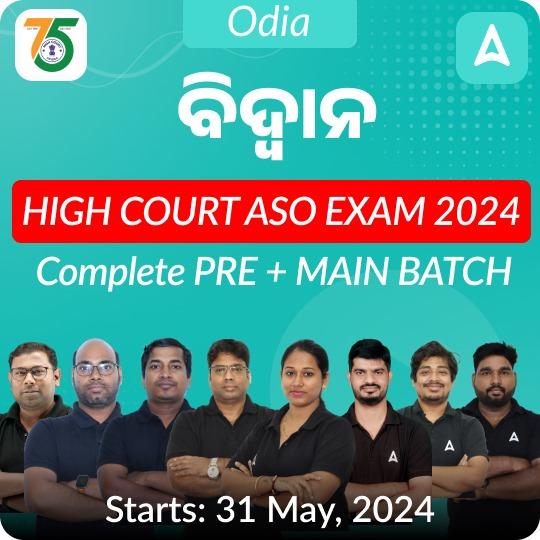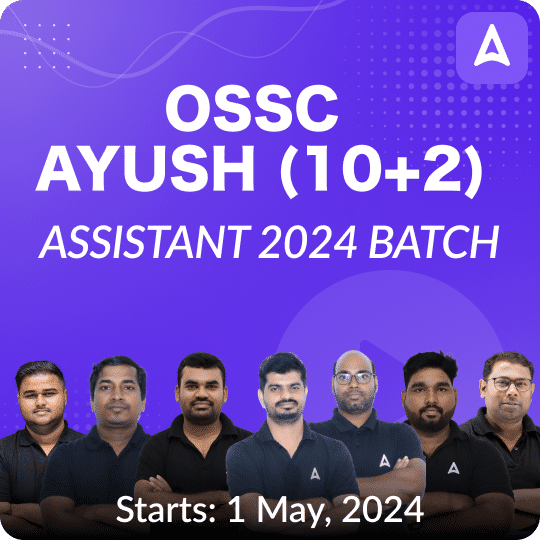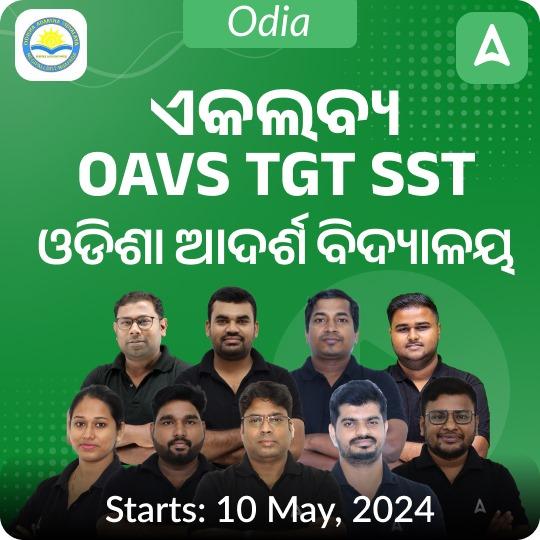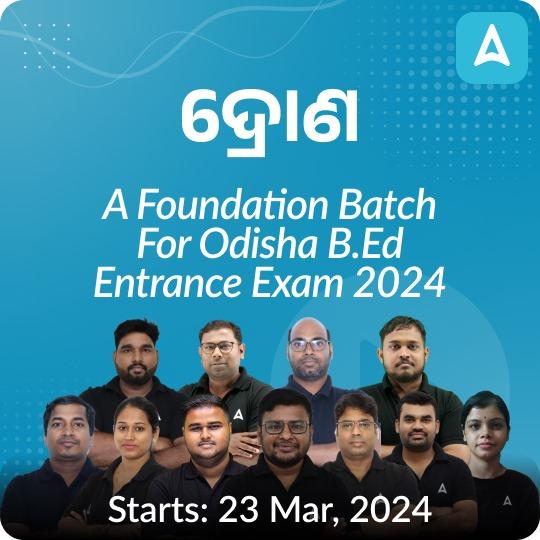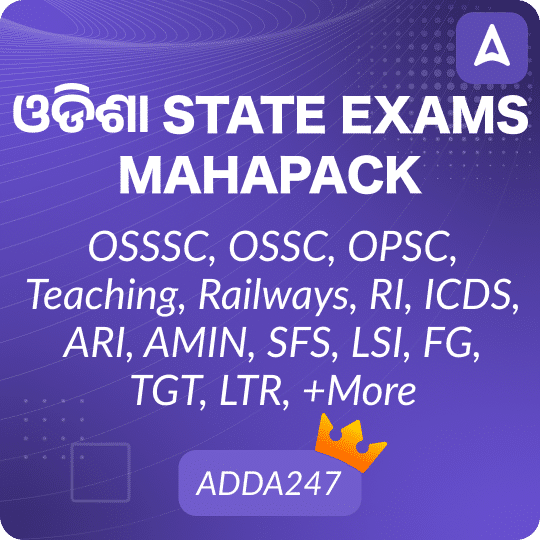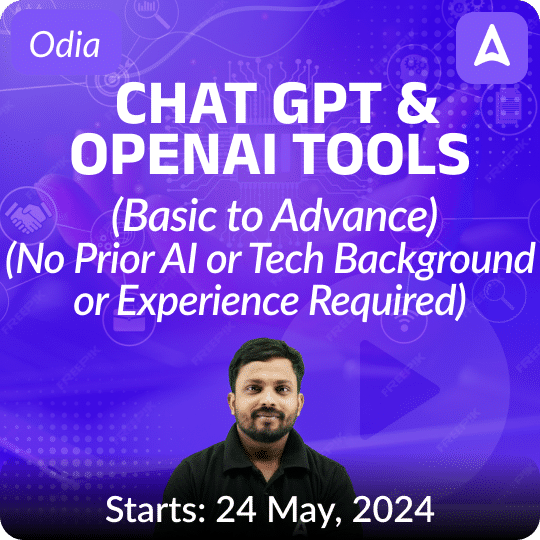The Election Commission of India (ECI) plays a pivotal role in ensuring the smooth functioning of democratic processes in the country. Aspiring candidates for various government exams such as OSSSC RI, ARI, Amin, SFS, and ICDS Supervisor must have a comprehensive understanding of the functions and mechanisms of the Election Commission.
Top 30 Election Commission of India MCQS For OSSSC RI,ARI, Amin, SFS, ICDS Supervisor
Here are the top 30 multiple-choice questions (MCQs) along with answers to aid candidates in their preparation:
- What is the primary responsibility of the Election Commission of India (ECI)?
A) Administering elections to panchayats and municipalities
B) Conducting elections to the Lok Sabha and Rajya Sabha
C) Overseeing appointments to the judiciary
D) Managing foreign affairsAnswer: B) Conducting elections to the Lok Sabha and Rajya SabhaExplanation: The ECI’s primary responsibility is to conduct free and fair elections to the Lok Sabha (House of the People), Rajya Sabha (Council of States), and State Legislative Assemblies. It ensures that the electoral process is conducted smoothly, impartially, and in accordance with the provisions of the Constitution and electoral laws.
- When was the Election Commission of India established?
A) 15th August 1947
B) 25th January 1950
C) 26th January 1952
D) 1st April 1960Answer: B) 25th January 1950Explanation: The Election Commission of India was established on 25th January 1950, in accordance with the provisions of the Indian Constitution, which came into effect on the same day. This date is celebrated as National Voters’ Day in India.
- Where is the secretariat of the Election Commission of India located?
A) Kolkata
B) Mumbai
C) New Delhi
D) ChennaiAnswer: C) New DelhiExplanation: The secretariat of the Election Commission of India is located in New Delhi, the capital city of India. From here, the commission coordinates and oversees the conduct of elections across the country.
- Which of the following elections is NOT administered by the Election Commission of India?
A) Lok Sabha elections
B) Rajya Sabha elections
C) State Legislative Assembly elections
D) Panchayat and municipality electionsAnswer: D) Panchayat and municipality electionsExplanation: While the Election Commission of India administers elections to the Lok Sabha, Rajya Sabha, and State Legislative Assemblies, it is not responsible for conducting elections to panchayats and municipalities. For these local body elections, each state has a separate State Election Commission.
- What is the significance of 25th January in relation to the Election Commission of India?
A) Constitution Day
B) National Voters’ Day
C) World Democracy Day
D) Election DayAnswer: B) National Voters’ DayExplanation: 25th January is celebrated as National Voters’ Day in India. It marks the foundation day of the Election Commission of India and aims to encourage, facilitate, and maximize the enrollment, especially for the new voters.
- According to Article 324 of the Indian Constitution, what authority is vested with the superintendence, direction, and control of elections?
A) President of India
B) Parliament
C) Election Commission
D) Supreme CourtAnswer: C) Election CommissionExplanation: Article 324 of the Indian Constitution establishes the Election Commission of India and vests it with the superintendence, direction, and control of elections to the Parliament, State Legislatures, and offices of the President and Vice President.
- Which article of the Indian Constitution ensures that no person can be ineligible for inclusion in electoral rolls based on religion, race, caste, or sex?
A) Article 325
B) Article 326
C) Article 327
D) Article 328Answer: A) Article 325Explanation: Article 325 prohibits the exclusion of any person from electoral rolls or claiming inclusion in special electoral rolls based on considerations of religion, race, caste, or sex. It upholds the principle of universal adult suffrage.
- What principle do elections to the House of the People and State Legislative Assemblies primarily adhere to according to Article 326?
A) Universal suffrage
B) Restricted suffrage
C) Property-based suffrage
D) Caste-based suffrageAnswer: A) Universal suffrageExplanation: Article 326 mandates that elections to the House of the People (Lok Sabha) and State Legislative Assemblies (Vidhan Sabhas) should be based on adult suffrage, allowing all citizens above a certain age to vote without any discrimination.
- Which legislative body has the power to make provisions regarding elections to legislatures, according to Article 327?
A) Parliament
B) State Legislature
C) President
D) Election CommissionAnswer: A) ParliamentExplanation: Article 327 grants the power to Parliament to make provisions with respect to elections to both Houses of Parliament and State Legislatures. This ensures that election laws can be adapted to evolving circumstances.
- What does Article 328 of the Indian Constitution empower the State Legislature to do?
A) Conduct elections independently
B) Oversee Parliament elections
C) Make provisions for elections to the State Legislature
D) Appoint members to the Election CommissionAnswer: C) Make provisions for elections to the State LegislatureExplanation: Article 328 grants the power to the Legislature of a State to make provisions with respect to elections to that Legislature. This allows state-specific electoral laws to be formulated as per the requirements of the state.
- According to Article 329, what is barred in electoral matters?
A) Interference by the President
B) Interference by the Prime Minister
C) Interference by the judiciary
D) Interference by the Election CommissionAnswer: C) Interference by the judiciaryExplanation: Article 329 bars interference by courts in electoral matters. It ensures that the electoral process is not unduly influenced or disrupted by judicial interventions, thus maintaining the independence of the electoral process.
- Which body is responsible for the superintendence, direction, and control of elections as per Article 324?
A) Parliament
B) Election Commission
C) President of India
D) State LegislatureAnswer: B) Election CommissionExplanation: Article 324 vests the superintendence, direction, and control of elections in India in the Election Commission. This ensures the independence and impartiality of the electoral process.
- What principle does Article 326 uphold regarding elections?
A) Universal adult suffrage
B) Restricted suffrage based on property ownership
C) Suffrage based on educational qualifications
D) Suffrage based on caste hierarchyAnswer: A) Universal adult suffrageExplanation: Article 326 mandates that elections to the House of the People and State Legislative Assemblies should be based on universal adult suffrage, allowing all citizens above a certain age to vote without any discrimination.
- Which article prohibits the exclusion of individuals from electoral rolls based on religion, race, caste, or sex?
A) Article 325
B) Article 326
C) Article 327
D) Article 328Answer: A) Article 325Explanation: Article 325 ensures that no person can be excluded from electoral rolls or claim inclusion in special electoral rolls based on considerations of religion, race, caste, or sex, thereby upholding the principle of universal suffrage.
- Who has the power to make provisions with respect to elections to legislatures, according to Article 327?
A) President
B) Election Commission
C) Parliament
D) State LegislatureAnswer: C) ParliamentExplanation: Article 327 grants the power to Parliament to make provisions with respect to elections to legislatures, ensuring that electoral laws can be adapted to changing circumstances as per the needs of the country.
- What is barred by Article 329 in electoral matters?
A) Interference by the Executive
B) Interference by the Election Commission
C) Interference by the Judiciary
D) Interference by the LegislatureAnswer: C) Interference by the JudiciaryExplanation: Article 329 prohibits interference by courts in electoral matters, ensuring that the electoral process is not unduly influenced or disrupted by judicial interventions, thus preserving the independence of the electoral process.
- Which constitutional article vests the superintendence, direction, and control of elections in the Election Commission?
A) Article 325
B) Article 326
C) Article 327
D) Article 324Answer: D) Article 324Explanation: Article 324 of the Indian Constitution vests the superintendence, direction, and control of elections in India in the Election Commission, ensuring the independence and impartiality of the electoral process.
- According to Article 326, on what basis are elections to the House of the People and State Legislative Assemblies conducted?
A) Restricted suffrage
B) Universal adult suffrage
C) Suffrage based on educational qualifications
D) Suffrage based on property ownershipAnswer: B) Universal adult suffrageExplanation: Article 326 mandates that elections to the House of the People and State Legislative Assemblies should be based on universal adult suffrage, allowing all citizens above a certain age to vote without any discrimination.
- Who has the power to make provisions regarding elections to legislatures, according to Article 328?
A) Parliament
B) Election Commission
C) President
D) State LegislatureAnswer: D) State LegislatureExplanation: Article 328 grants the power to the Legislature of a State to make provisions with respect to elections to that Legislature, ensuring that state-specific electoral laws can be formulated as per the needs of the state.
- What principle does Article 325 uphold regarding electoral inclusion?
A) Universal adult suffrage
B) Suffrage based on property ownership
C) Suffrage based on educational qualifications
D) Exclusion based on caste hierarchyAnswer: A) Universal adult suffrageExplanation: Article 325 ensures that no person can be excluded from electoral rolls
- According to which article of the Indian Constitution is the superintendence, direction, and control of elections vested in an Election Commission?
A) Article 324
B) Article 325
C) Article 326
D) Article 327Answer: A) Article 324Explanation: Article 324 of Part XV of the Indian Constitution establishes that the superintendence, direction, and control of elections shall be vested in an Election Commission. This empowers the Election Commission of India to conduct and oversee all elections in the country, ensuring their fairness and integrity.
- Under which article of the Indian Constitution are elections to the House of the People and Legislative Assemblies of States based on adult suffrage?
A) Article 325
B) Article 326
C) Article 327
D) Article 328Answer: B) Article 326Explanation: Article 326 of the Indian Constitution, found in Part XV, establishes the principle of adult suffrage for elections to the House of the People (Lok Sabha) and the Legislative Assemblies of States. Adult suffrage means that every citizen above a certain age (currently 18 years) has the right to vote without any discrimination based on caste, religion, race, or sex.
- Which article of the Indian Constitution imposes a bar on interference by courts in electoral matters?
A) Article 327
B) Article 328
C) Article 329
D) Article 330Answer: C) Article 329Explanation: Article 329, as part of Part XV of the Indian Constitution, imposes a bar on interference by courts in electoral matters. This article prevents the judiciary from intervening in the conduct of elections, allowing the Election Commission to function independently and make decisions regarding electoral processes without judicial interference.
- In which part of the Indian Constitution is the establishment of the Election Commission mentioned?
A) Part XV
B) Part IV
C) Part XI
D) Part VIIIAnswer: A) Part XV
Explanation:Part XV of the Indian Constitution specifically deals with elections.
- How are the Chief Election Commissioner (CEC) and Election Commissioners appointed according to the CEC and Other ECs (Appointment, Conditions of Service and Term of Office) Act, 2023?
A) By the Prime Minister
B) By the Chief Justice of India
C) By the President
D) By the ParliamentAnswer: C) By the PresidentExplanation: According to the CEC and Other ECs (Appointment, Conditions of Service and Term of Office) Act, 2023, the President of India appoints the Chief Election Commissioner and Election Commissioners.
- What is the fixed tenure for the Chief Election Commissioner and Election Commissioners as per the Act?
A) 4 years
B) 5 years
C) 6 years
D) 7 yearsAnswer: C) 6 yearsExplanation: The Chief Election Commissioner and Election Commissioners have a fixed tenure of six years according to the CEC and Other ECs (Appointment, Conditions of Service and Term of Office) Act, 2023.
- When did the Model Code of Conduct originate, and where was its initial implementation?
A) Originated during Lok Sabha elections in 1971, implemented in Gujarat
B) Originated during assembly elections in 1960, implemented in Kerala
C) Originated during Lok Sabha elections in 1952, implemented in Uttar Pradesh
D) Originated during assembly elections in 1975, implemented in Tamil NaduAnswer: B) Originated during assembly elections in 1960, implemented in KeralaExplanation: The Model Code of Conduct originated during assembly elections in Kerala in 1960.
- What does the Model Code of Conduct (MCC) refer to?
A) Set of laws for parliamentary proceedings
B) Guidelines for media ethics during elections
C) Guidelines for political parties and candidates during campaigning
D) Rules for conducting opinion pollsAnswer: C) Guidelines for political parties and candidates during campaigningExplanation: The Model Code of Conduct refers to a set of guidelines by the Election Commission of India (ECI) for political parties and candidates to maintain decorum in their campaigning.
- What action can the Election Commission take if a party or candidate violates the Model Code of Conduct?
A) Issue a congratulatory note
B) Order a police investigation
C) Initiate legal proceedings
D) Give a commendation certificateAnswer: C) Initiate legal proceedingsExplanation: If the Election Commission finds a party or candidate in violation of the Model Code of Conduct, it can initiate legal proceedings, ranging from issuing a warning to ordering an FIR against the concerned party or candidate.
- What activities are ministers and authorities prohibited from engaging in after the announcement of election dates?
A) Announcing new financial schemes
B) Laying foundation stones for new projects
C) Both A and B
D) None of the aboveAnswer: C) Both A and BExplanation: After the announcement of election dates, ministers and authorities are prohibited from announcing financial grants or laying foundation stones for new projects.

